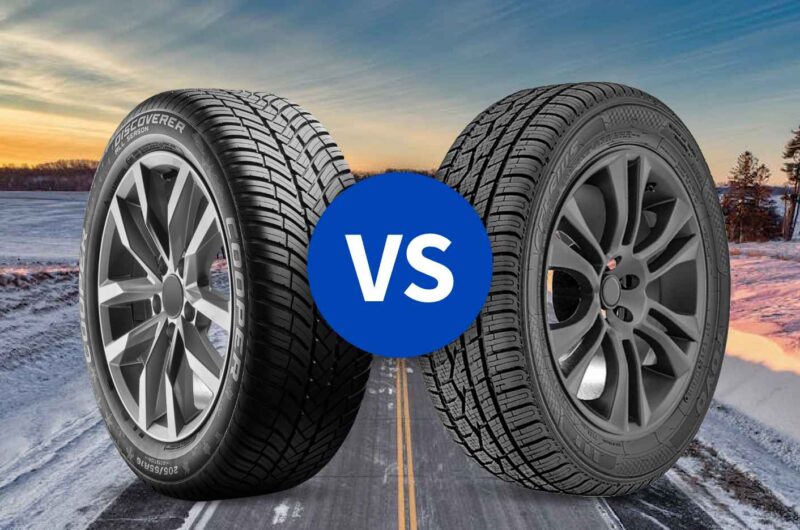As winters chill blankets the roads and snowflakes dance in the air, the debate over the best tire choice for your vehicle heats up. Should you opt for specialized winter tires, designed to tread confidently over icy surfaces, or are all-season tires more suited for your year-round driving needs? This essential question hangs in the balance for many drivers facing the perils of winter storms.
The truth is, the right tire can mean the difference between gliding smoothly through frosty intersections and getting stuck helplessly in a snowbank. In this article, we’ll unpack the distinct characteristics of winter tires and all-season tires, examining their unique advantages and disadvantages, so that you can navigate winters challenges with confidence and peace of mind.
Buckle up—winter driving doesn’t have to be a gamble!
Performance in Cold Weather Conditions
When the temperature plunges and snow blankets the landscape, the performance of your tires becomes paramount. Used winter tires, with their specially formulated rubber compounds, remain pliable even in frigid conditions, allowing for optimal grip on icy surfaces. The deep tread patterns and unique siping enhance their ability to channel snow and slush away, providing unparalleled traction.
In contrast, all-season tires, while versatile in mild winter conditions, struggle to maintain that same level of performance as temperatures drop. Their harder rubber can stiffen, leading to longer stopping distances and reduced handling precision when roads become slick.
Essentially, if you find yourself navigating through blizzards or icy backroads, the choice is clear: used winter tires equip you to tackle winter’s worst, leaving all-season options feeling less than secure.
Traction and Grip: A Comparative Analysis

When comparing traction and grip between winter tires and all-season tires, the differences are stark and impactful. Winter tires, with their specialized rubber compounds and deeper treads, are engineered to slice through snow and ice, offering unparalleled grip in frigid conditions.
They maintain flexibility even in subzero temperatures, which enhances their contact with slippery surfaces. In contrast, all-season tires perform admirably in mild climates, but their limitations become glaringly apparent when temperatures drop and the roads become treacherous.
Their tread patterns, designed for versatility rather than specialized performance, struggle to provide the same level of confidence on icy terrain. Thus, while all-season tires may suffice for drivers in transitional climates, those who frequently navigate wintry landscapes will find themselves yearning for the robust traction of dedicated winter tires.
The choice is not merely about convenience; it could mean the difference between a smooth journey and a perilous slide into a snowbank.
Handling and Stability: Navigating Winter Roads

Navigating winter roads can feel like traversing a treacherous maze, especially when snow and ice blanket the landscape. The grip of winter tires is like a secret weapon in this challenge; their specialized tread patterns dig into snow and slush, ensuring you stay firmly planted on the road.
In contrast, all-season tires, designed for a variety of conditions, often struggle to maintain control when the temperature drops and the white stuff starts to fall. With winter tires, the confidence of knowing your vehicle can respond swiftly to sudden changes in grip or direction makes all the difference between a smooth drive and a spin-out on a hidden patch of ice.
It’s not just about getting from point A to point B; it’s about navigating with assurance, tackling the unexpected with a level of stability that makes winter driving not just possible but practical. When deciding which tires to trust during the cold months, remember that handling and stability are paramount, and winter tires rise to the occasion like no other.
Conclusion

In conclusion, the choice between winter tires and all-season tires largely depends on your driving habits, climate conditions, and safety priorities. While all-season tires offer convenience and decent performance for mild winter conditions, they often fall short in severe snow and icy situations, potentially leaving you stuck in a snowbank.
On the other hand, winter tires are specifically designed for harsh winter environments, providing enhanced traction, handling, and braking in snow and ice. For those who frequently navigate through challenging winter weather, investing in quality winter tires—whether new or used—can be a crucial step in ensuring your safety and peace of mind on the road.
Ultimately, making an informed choice will help you tackle winter conditions confidently and reduce the chances of being caught off guard by the elements.


